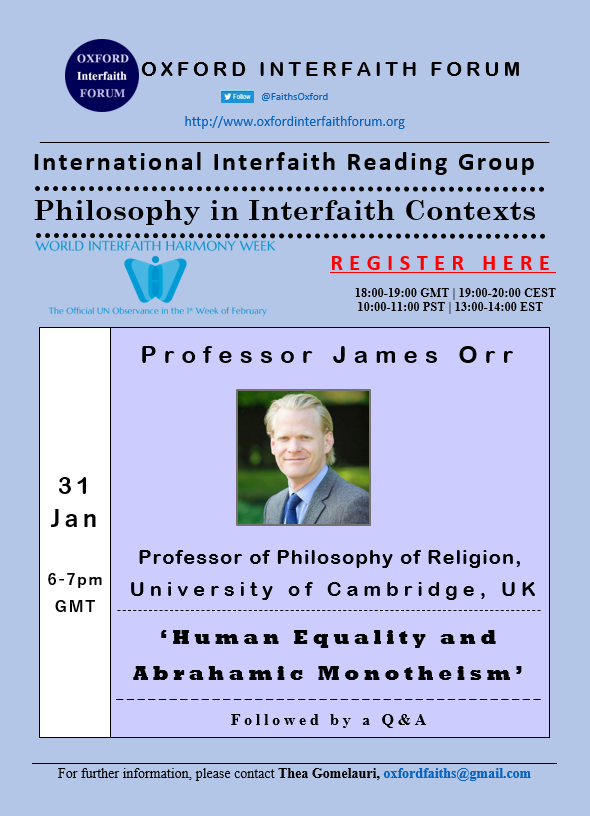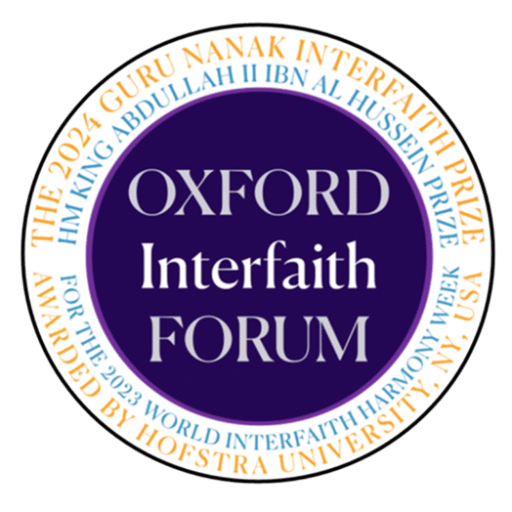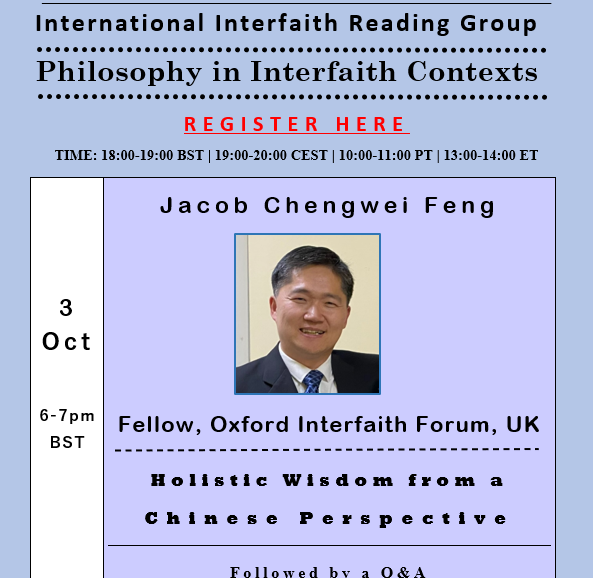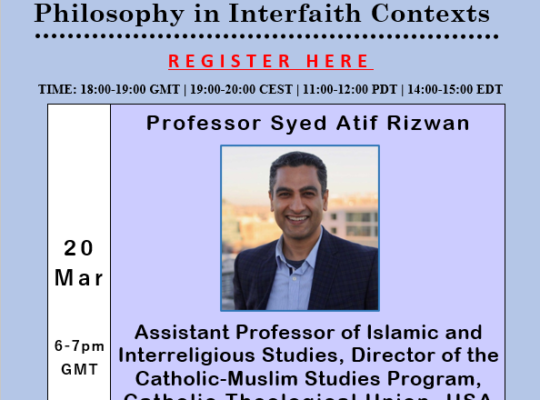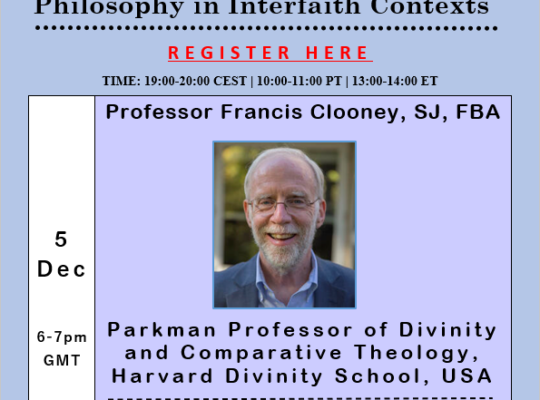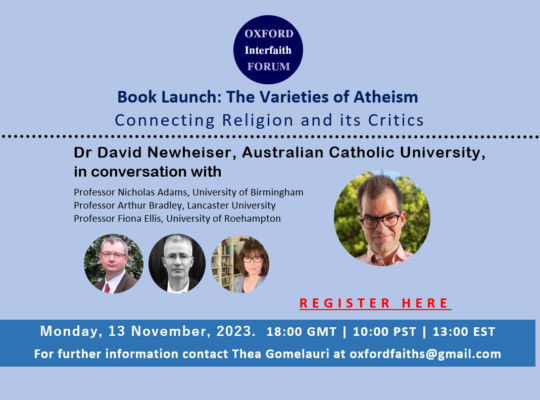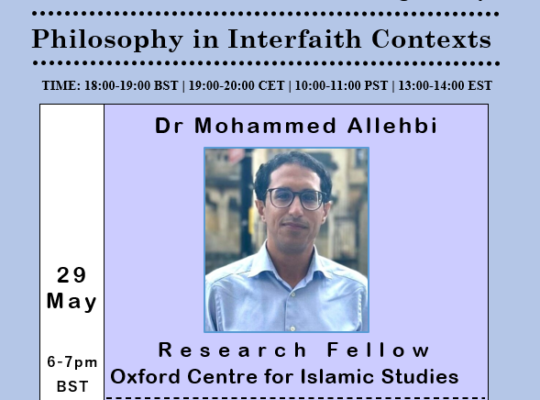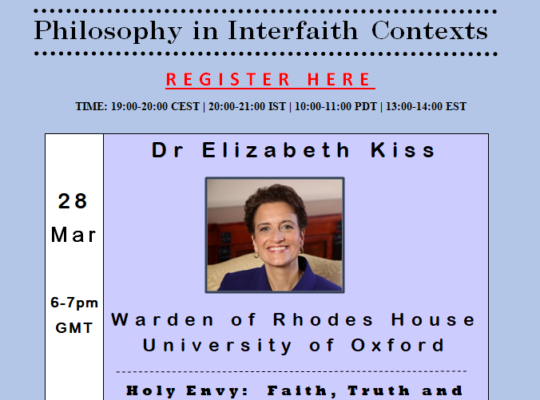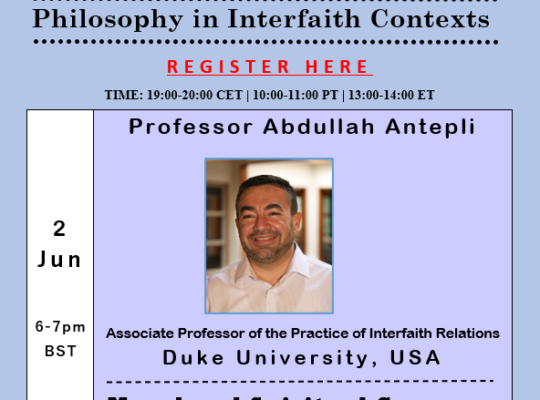3 October, 2022
We are delighted to welcome Jacob Chengwei Feng, Fuller Theological SEminary, Fellow of the Oxford Interfaith Forum to lead a session of the Philosophy in Interfaith Contexts.
Here are the details of this fascinating session.
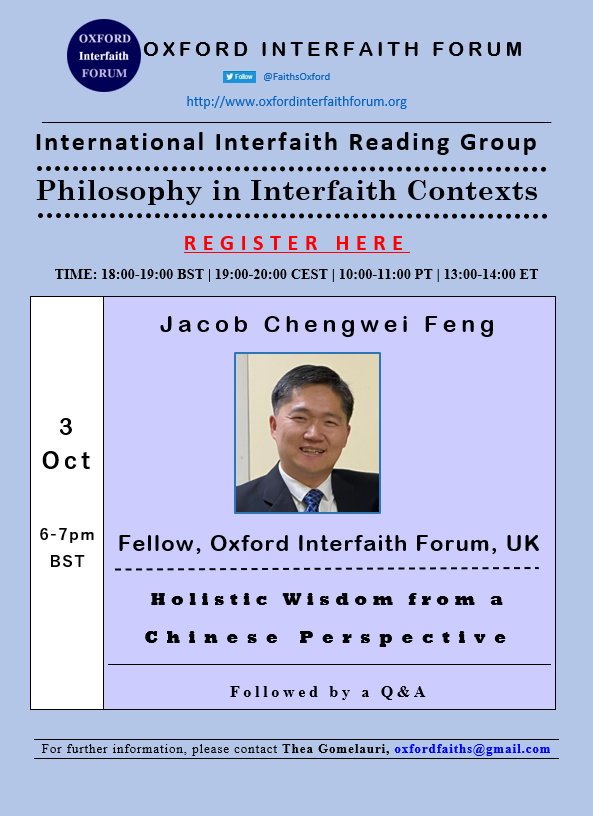
Topic: Holistic Wisdom from a Chinese Perspective
Abstract: Philosophies in the East and West have favored wisdom in their search for truths. In particular, the Chinese civilization has been striving for holistic wisdom in its long history of absorbing various ingredients from the Abrahamic faiths since as early as the seventh century. The paper seeks to investigate how the earliest forms of Christianity, Judaism, and Islam have interacted with Chinese metaphysics. In particular, the paper will examine the earliest written records in Chinese (including inscriptions) of the Luminous Religion (or Jingjiao), the earliest Jews in Kaifeng, and the earliest Chinese Muslims. By analyzing their theology of creation with reference to the Holy Spirit, or Qi (breath), the paper attempts at a constructive Chinese natural theology, which is based on a sympathetic and critical assessment of Professor Alister McGrath’s natural theology but makes up for his spirit deficit. The paper argues that the holistic wisdom achieved in the early integration process of the Abrahamic faiths with the Chinese worldview is centered on the spirit, or Qi (wind/breath), which provides a fruitful ground to construct a contemporary Chinese natural theology. The contribution of this paper lies in its original research into the earliest manuscripts of the three Abrahamic faiths in China from the perspective of the doctrine of creation and its relationship with the Spirit. The newly constructed Chinese natural theology opens a door into a fruitful interfaith dialogue and science-theology conversation.
Speaker: Jacob Chengwei Feng,
Chair: Professor Veli-Matti Kärkkäinen, Professor of Systematic Theology at the Fuller Theological Seminary, CA, USA
Concluding Statements: Professor Diane Obenchain, Emerita Senior Professor of Religion and Former Director of the China Initiative at the Fuller Theological Seminary, CA, USA
Date: 3 October, 2022
Time: 18:00-19:00 BST | 10:00-11:00 PT | 13:00-14:00 ET
Venue: Online
After registering, you will receive email from ZOOM containing information about joining the meeting.
If you do not see the email in your inbox, please check your SPAM/JUNK folders.
If you would like to join the Philosophy in Interfaith Contexts Reading Group, please sign up here.
If you missed this session, a recording is available below:
Related Sessions
- Qohelet: Search for a Life Worth Living

- Friends of the Devil: Rebellion and the Construction of Early Islamic Caliphal Sovereignty
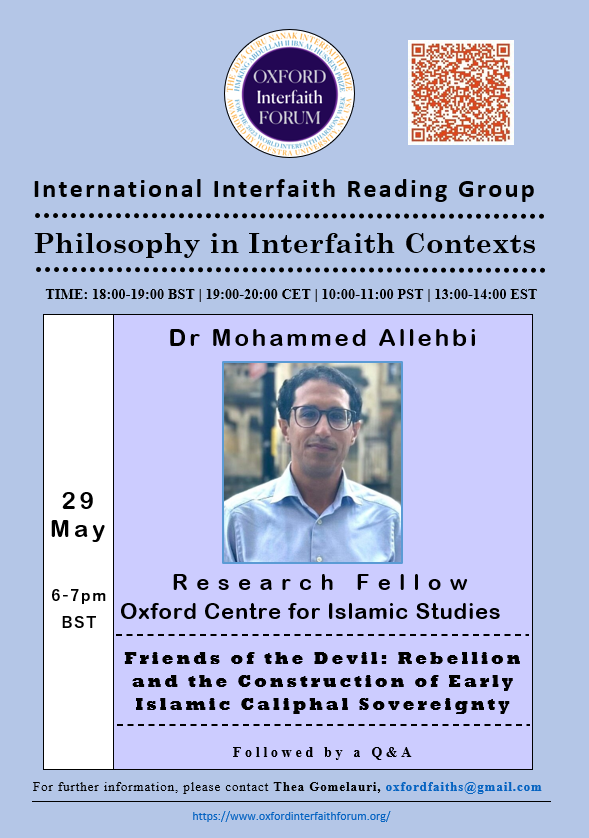
- God, Evil, and Suffering in Islam
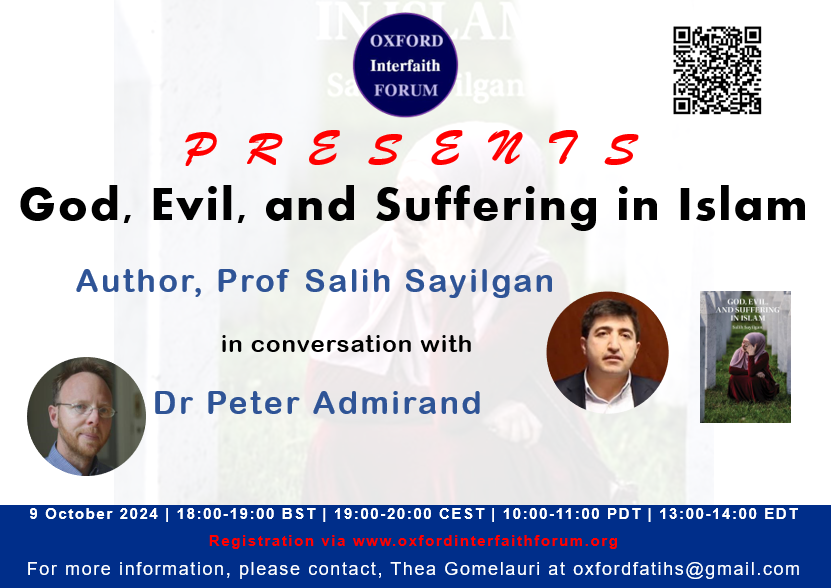
- Judaism Is about Love
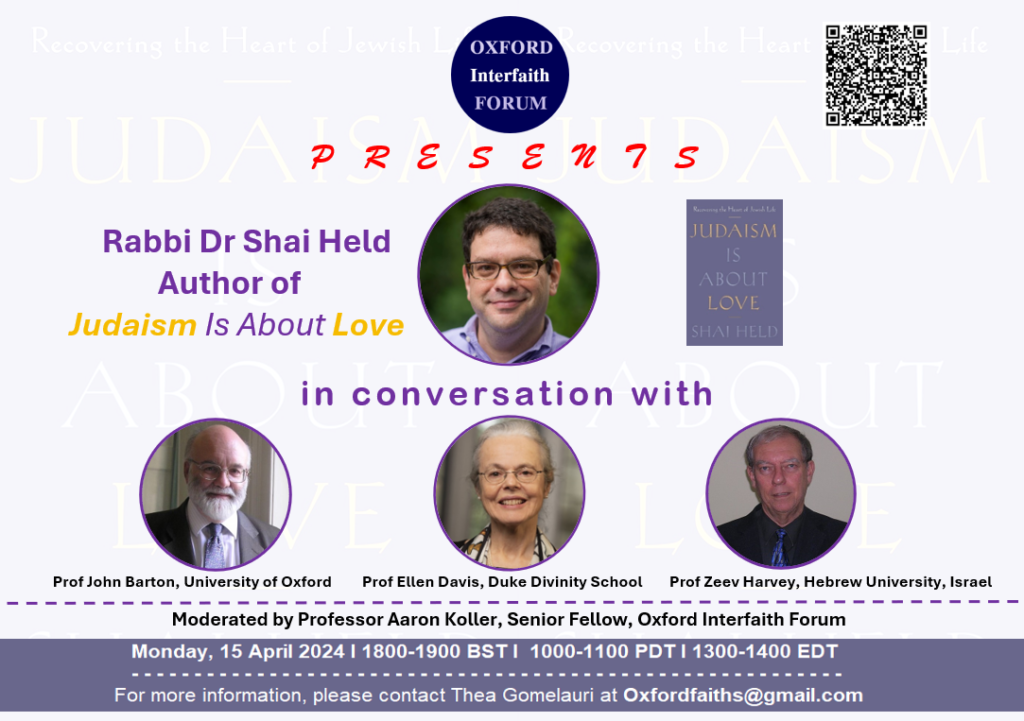
- The Ties That Bond Us: Differences of Sacred Values in Interfaith Organizing
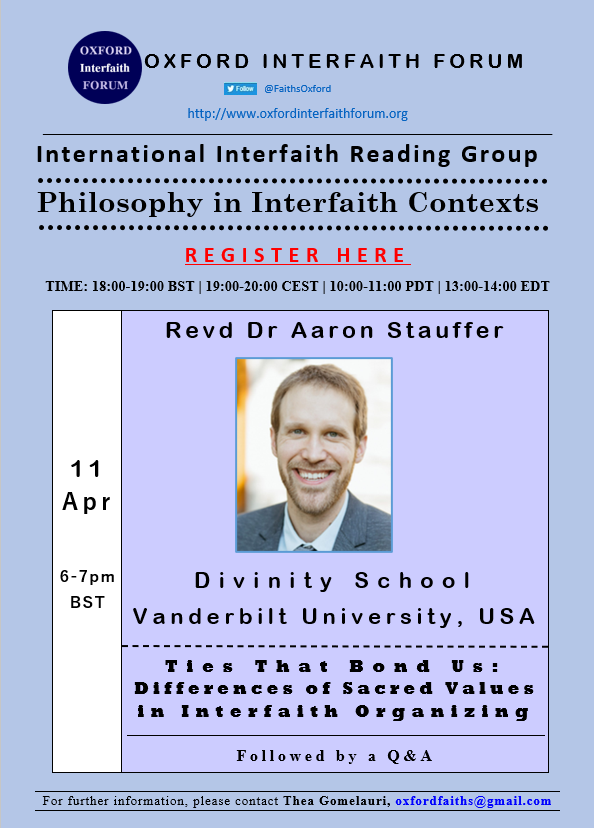
- When Salafi Muslims Meet Evangelical Christians: A Hopeful Dispatch from the United States
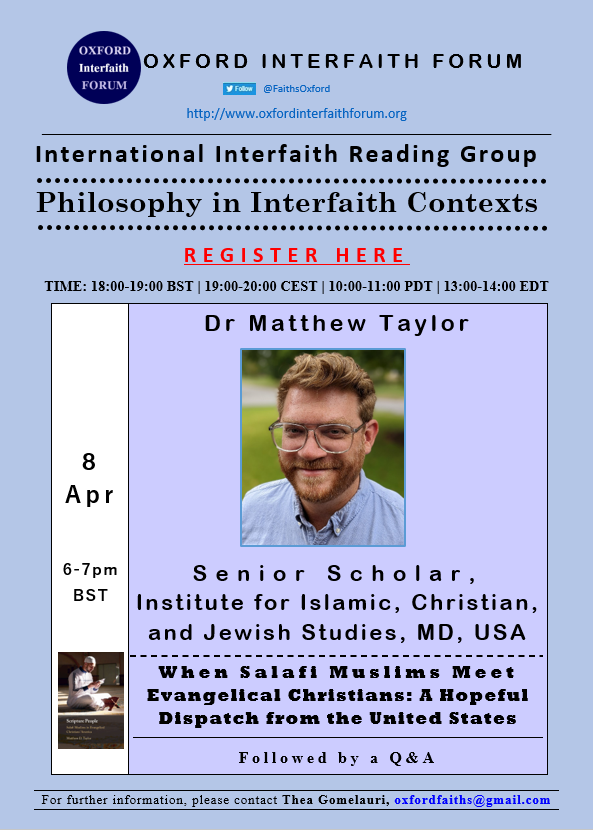
- The Varieties of Atheism: Connecting Religion and Its Critics
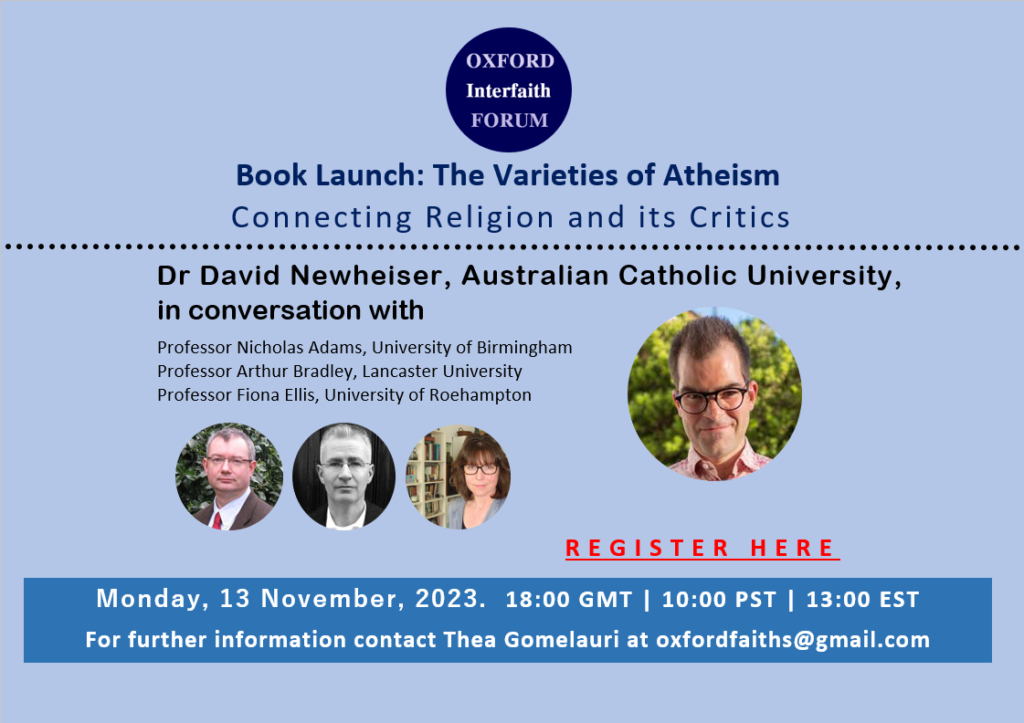
- Making Sense of “GOD”: What God-Talk Means and Does
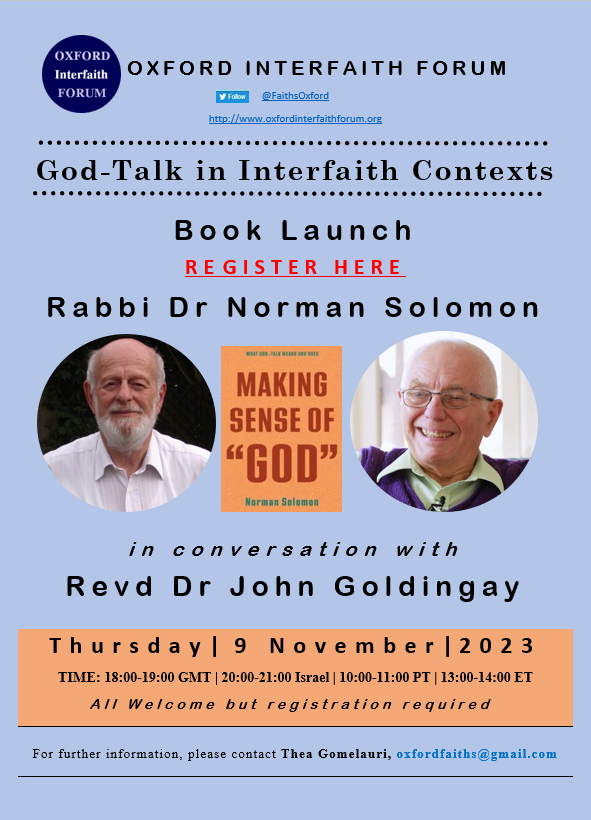
- A Jewish Philosophical Approach to Interfaith Relations: Re-reading Genesis According to Rabbi Jonathan Sacks
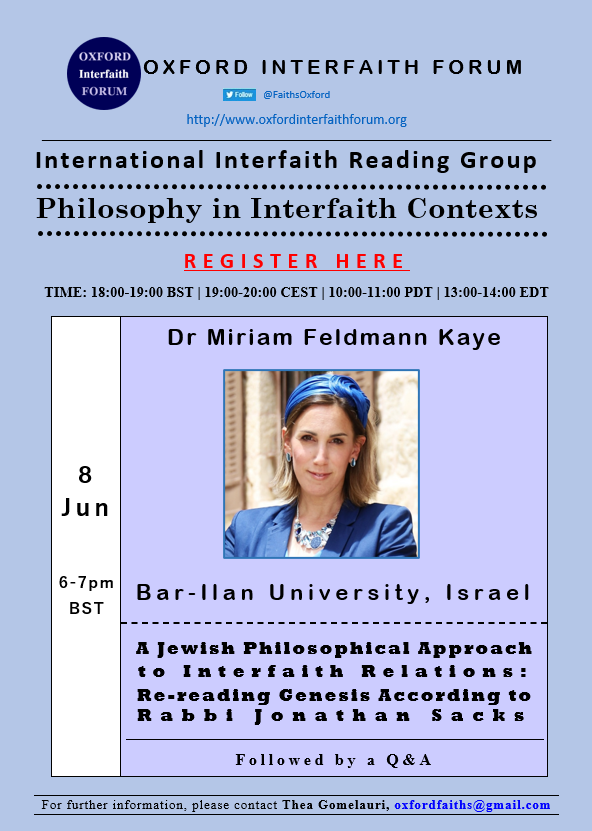
- Doing Comparative Theology Through a Decolonial Lens
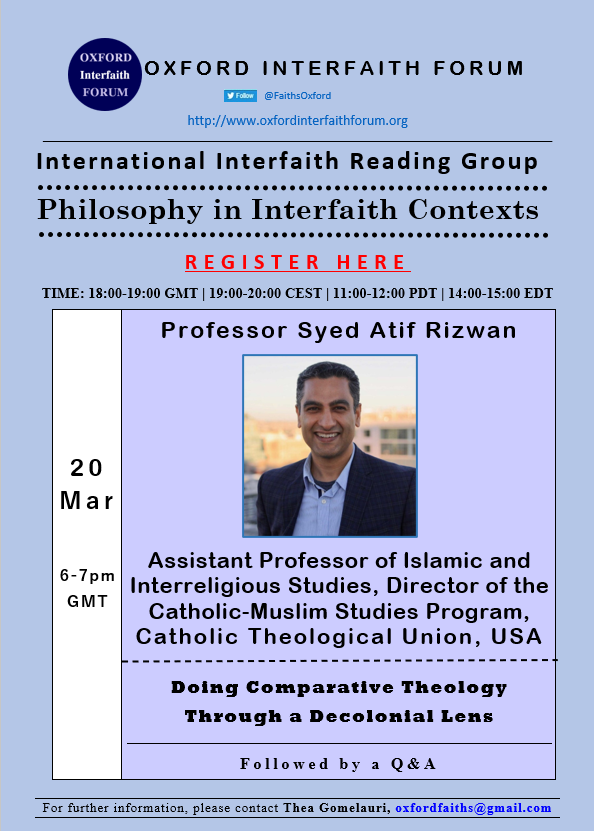
- Can Aristotle’s Ideas on Akrasia Shed Light on the Account of Original Sin in Gen 3:1-6?
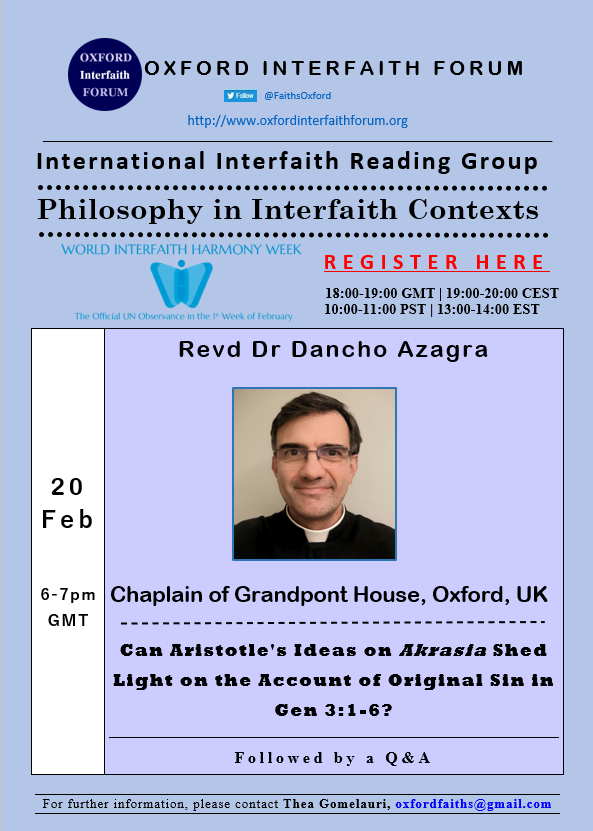
- Development in Catholic Teaching about and Relations with Jews since World War II
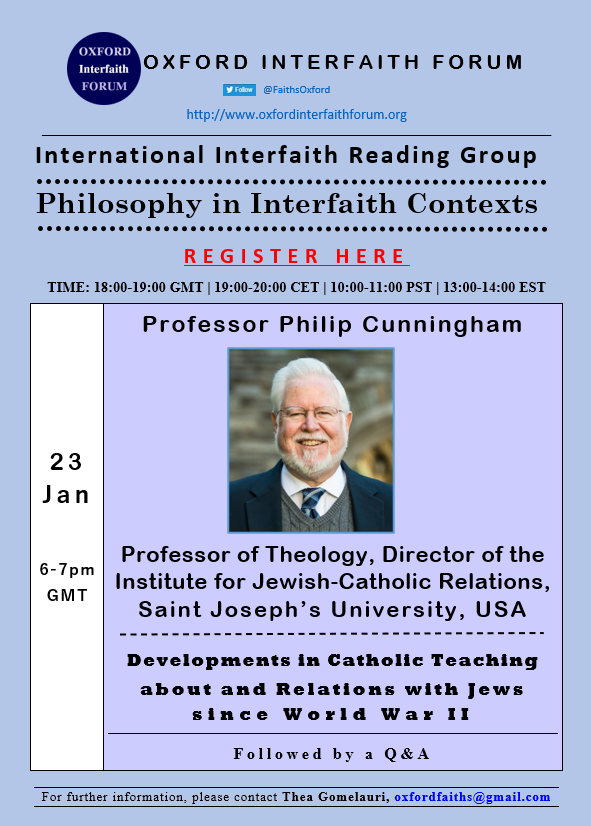
- How Christians Can Learn from the Devotional Poetry of Hindu South India
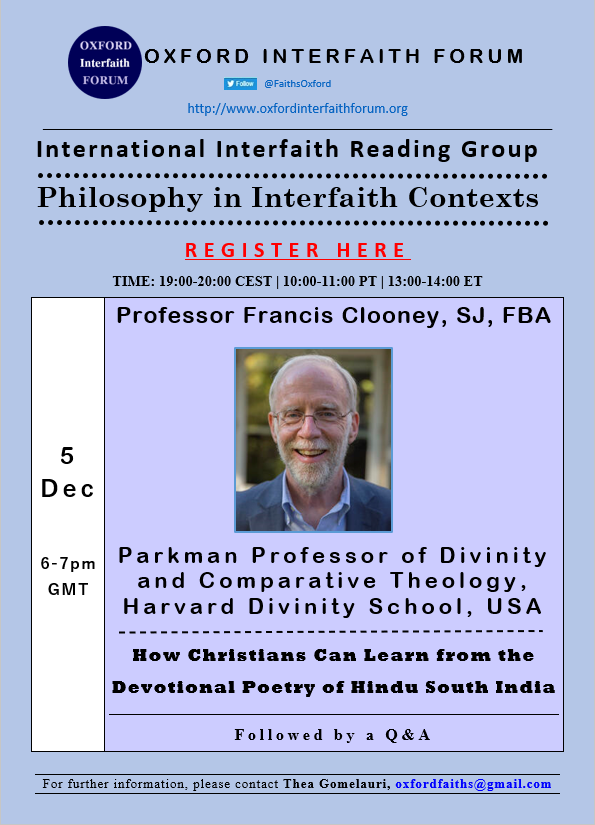
- Historical Suffering and Agency: Alternative Conceptions of Power in the Jewish Philosophical Thought of Hermann Cohen
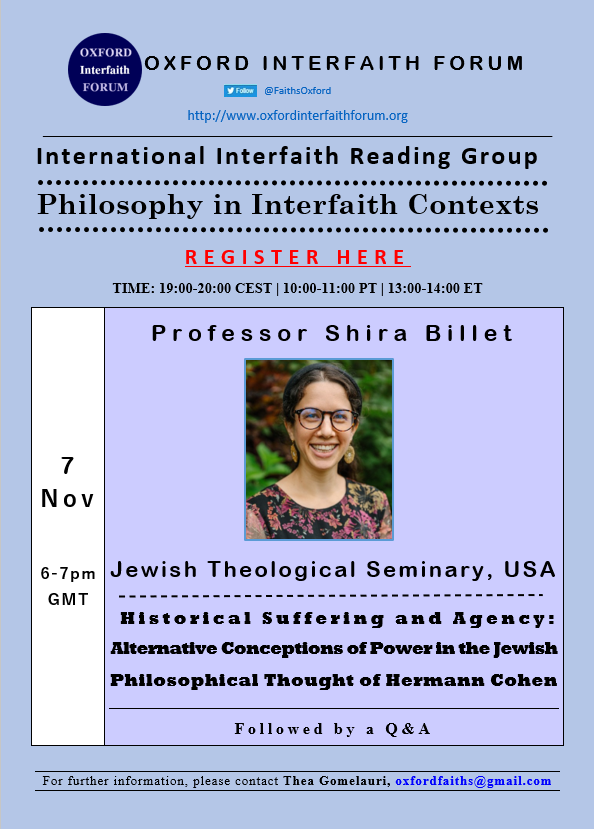
- Holistic Wisdom from a Chinese Perspective

- An Islamic Philosophy of Plurality: Shah Waliullah of Delhi (1703-62) on the Unity and Diversity of Humanity
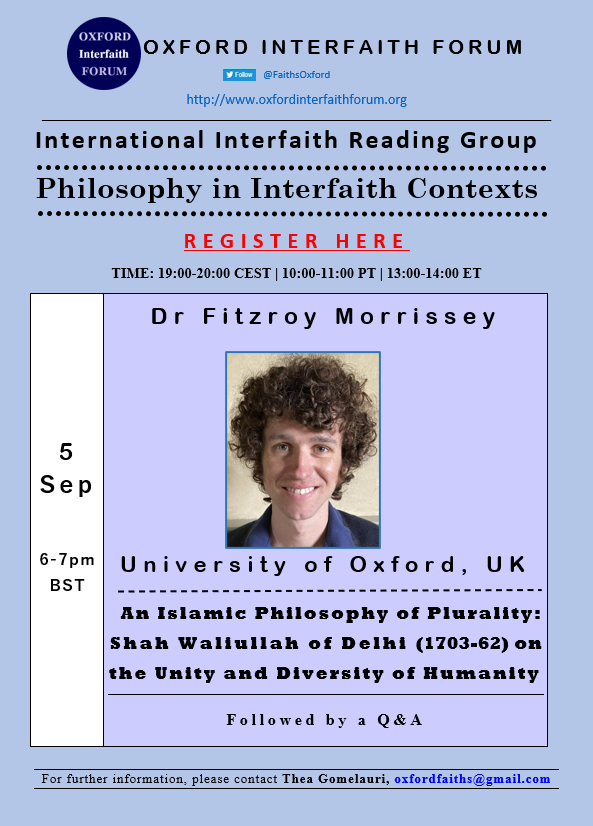
- Reaching beyond Metaphysics: God of Love, God beyond Being in Two Traditions
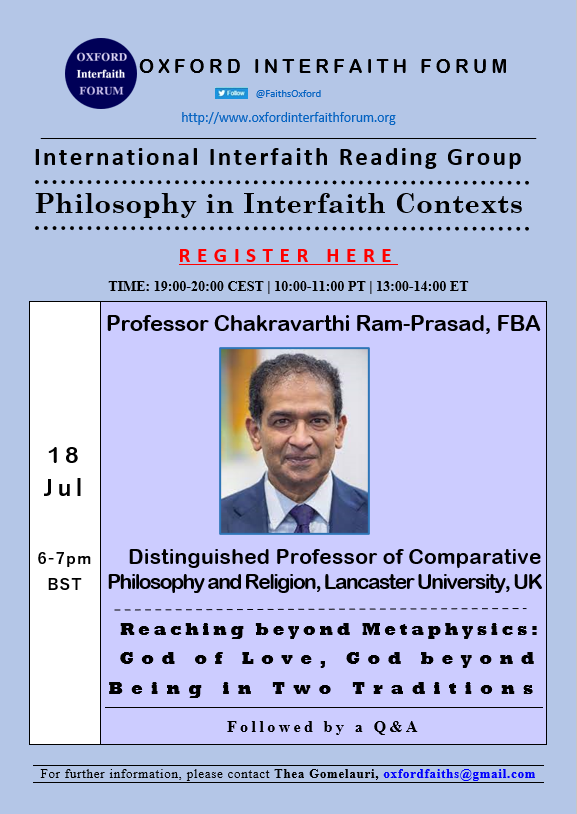
- Moral and Spiritual Courage: A Muslim Perspective
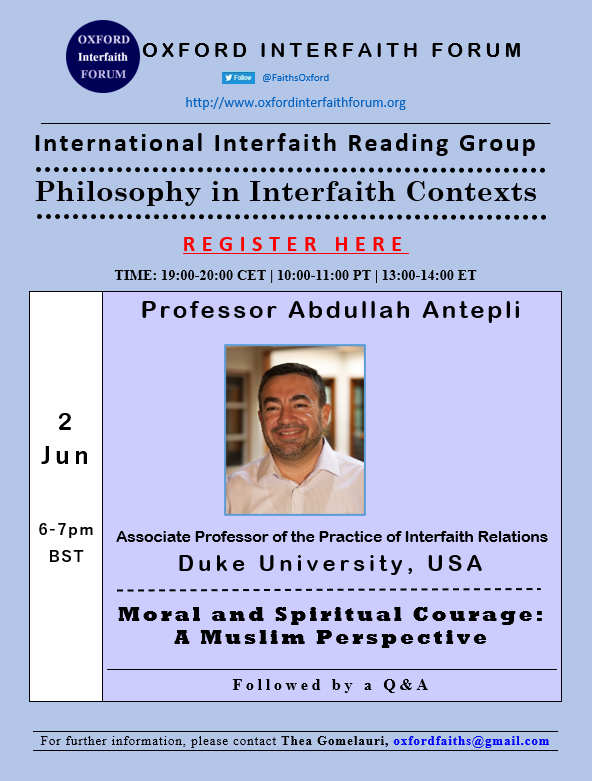
- A Religious Crucible: Elia Benamozegh (1823-1900), Jewish Universalism and Interreligious Encounters
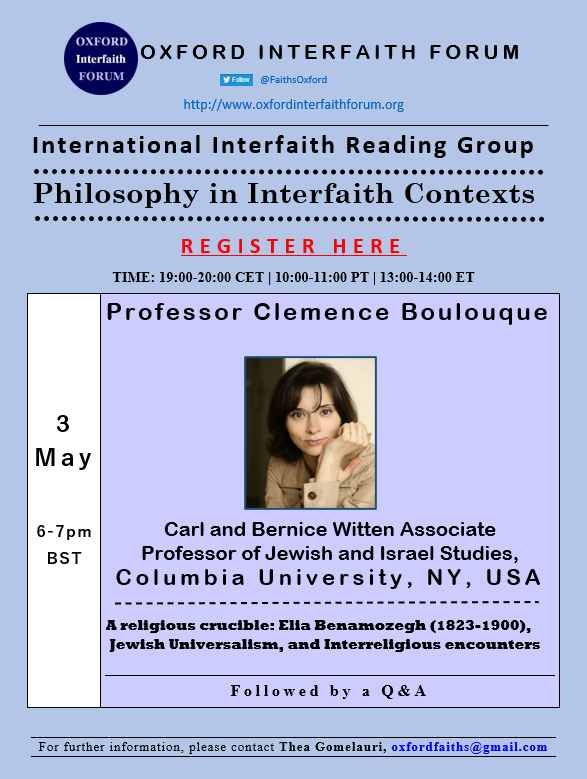
- Holy Envy: Faith, Truth and Interfaith Understanding
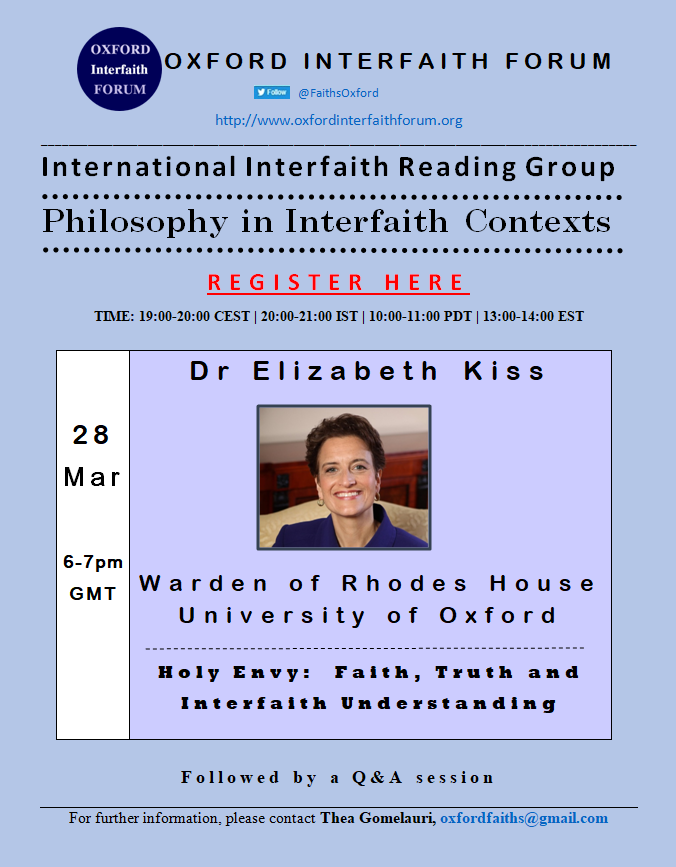
- Matteo Ricci and the Problem of Religious Translation
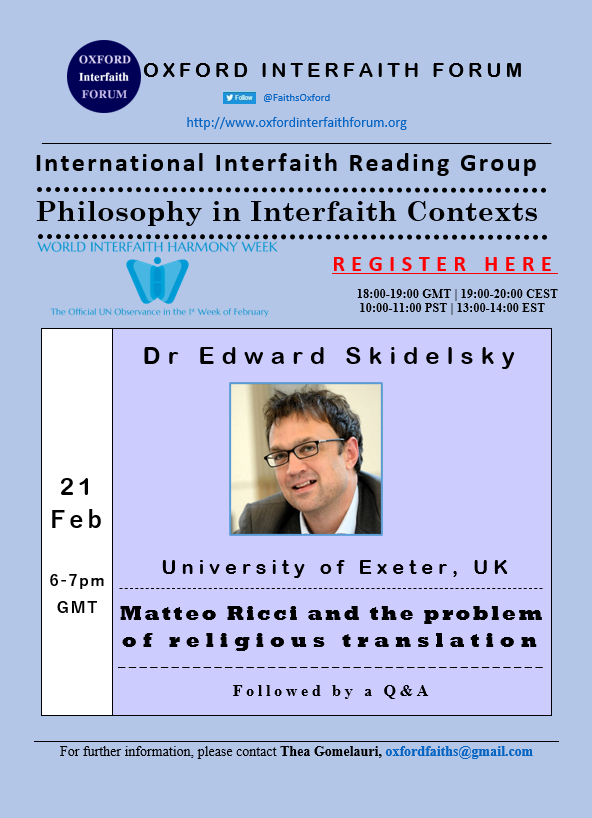
- Human Equality and Abrahamic Monotheism
